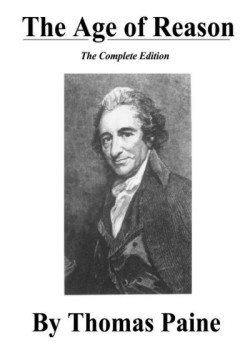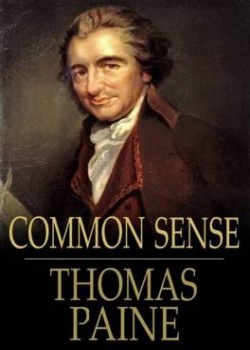CONSTITUTION OF THE UNITED STATES
CHAPTER XLI
GUARANTY OF REPUBLICAN GOVERNMENT -- MODE OF MAKING AMENDMENTS
§ 1817. The fourth section of the fourth article is as follows:
"The United States shall guaranty to every state in this Union a republican form of government; and shall protect each of them against invasion; and on application of the legislature, or of the executive, when the legislature cannot be convened, against domestic violence."
§ 1818. The want of a provision of this nature was felt, as a capital defect in the plan of the confederation, as it might in its consequences endanger, if not overthrow, the Union. Without a guaranty, the assistance to be derived from the national government in repelling domestic dangers, which might threaten the existence of the state constitutions, could not be demanded, as a right, from the national government. Usurpation might raise its standard, and trample upon the liberties of the people, while the national government could legally do nothing more, than behold the encroachments with indignation and regret. A successful faction might erect a tyranny on the ruins of order and law; while no succour could be constitutionally afforded by the Union to the friends and supporters of the government. But this is not all. The destruction of the national government itself, or of neighbouring states, might result from a successful rebellion in a single state. Who can determine, what would have been the issue, if the insurrection in Massachusetts, in 1787, had been successful, and the malcontents had been headed by a Caesar or a Cromwell? If a despotic or monarchical government were established in one state, it would bring on the ruin of the whole republic. Montesquieu has acutely remarked, that confederated governments should be formed only between states, whose form of government is not only similar, but also republican.
§ 1819. The Federalist has spoken with so much force and propriety upon this subject, that it supersedes all further reasoning. "In a confederacy," says that work, "founded on republican principles, and composed of republican members, the superintending government ought clearly to possess authority to defend the system against aristocratic or monarchical innovations. The more intimate the nature of such a union may be, the greater interest have the members in the political institutions of each other; and the greater right to insist, that the forms of government, under which the compact was entered into, should be substantially maintained.
§ 1820. "But a right implies a remedy; and where else could the remedy be deposited, than where it is deposited by the constitution? Governments of dissimilar principles and forms have been found less adapted to a federal coalition of any sort, than those of a kindred nature. 'As the confederate republic of Germany,' says Montesquieu, 'consists of free cities and petty states, subject to different princes, experience shows us, that it is more imperfect, than that of Holland and Switzerland.' ' Greece was undone,' he adds, ' as soon as the king of Macedon obtained a seat among the Amphyctions.' In the latter case, no doubt, the disproportionate forge, as well as the monarchical form of the new confederate, had its share of influence on the events.
§ 1821. "It may possibly be asked, what need there could be of such a precaution, and whether it may not become a pretext for alterations in the state governments, without the concurrence of the states themselves. These questions admit of ready answers. If the interposition of the general government should not be needed, the provision for such an event will be a harmless superfluity only in the constitution. But who can say, what experiments may be produced by the caprice of particular states, by the ambition of enterprising leaders, or by the intrigues and influence of foreign powers? To the second question, it may be answered, that if the general government should interpose by virtue of this constitutional authority, it will be of course bound to. pursue the authority. But the authority extends no further than to a guaranty of a republican form of government, which supposes a pro-existing government of the form, which is to be guaranteed. As long therefore as the existing republican forms are continued by the states, they are guaranteed by the federal constitution. Whenever the states may choose to substitute other republican forms, they have a right to do so, and to claim the federal guaranty for the latter. The only restriction imposed on them is, that they shall not exchange republican for anti-republican constitutions; a restriction, which, it is presumed, will hardly be considered as a grievance.
§ 1822. "A protection against invasion is due from every society, to the parts composing it. The latitude of the expression here used, seems to secure each state not only against foreign hostility, but against ambitious or vindictive enterprises of its more powerful neighbours. The history both of ancient and modern confederacies proves, that the weaker members of the union ought not to be insensible, to the policy of this article.
§ 1823. "Protection against domestic violence is added with equal propriety. It has been remarked, that even among the Swiss cantons, which, properly speaking, are not under one government, provision is made for this object; and the history of that league informs us, that mutual aid is frequently claimed and afforded; and as well by the most democratic, as the other cantons. A recent and well-known event among ourselves has warned us to be prepared for emergencies of a like nature.
§ 1824. "At first view, it might seem not to square with the republican theory, to suppose, either that a majority have not the right, or that a minority will have the force, to subvert a government; and consequently, that the federal interposition can never be required, but when it would be improper: But theoretic reasoning in this, as in most other cases, must be qualified by the lessons of practice. Why may not illicit combinations for purposes of violence, be formed, as well by a majority of a state, especially a small state, as by a majority of a county, or a district of the same state; and if the authority of the state ought in the latter case to protect the local magistracy, ought not the federal authority in the former to support the state authority? Besides; there are certain parts of the state constitutions, which are so interwoven with the federal constitution, that a violent blow cannot be given to the one without communicating the wound to the other. Insurrections in a state will rarely induce a federal interposition, unless the number concerned in them bear some proportion to the friends of government. It will be much better, that the violence in such cases should be repressed by the superintending power, than that the majority should be left to maintain their cause by a bloody and obstinate contest. The existence of a fight to interpose will generally prevent the necessity of exerting it.
§ 1825. "Is it true, that force and right are necessarily on the same side in republican governments? May not the minor party possess such a superiority of pecuniary resources, of military talents and experience, or of secret succours from foreign powers, as will render it superior also in an appeal to the sword? May not a more compact and advantageous position turn the scale on the same side, against a superior number so situated, as to be less capable of a prompt and collected exertion of its strength? Nothing can be more chimerical than to imagine, that, in a trial of actual force, victory may be calculated by the rules, which prevail in a census of the inhabitants, or which determine the event of an election! May it not happen, in fine, that the minority of citizens may become a majority of persons, by the accession of alien residents, of a casual concourse of adventurers, or of those, whom the constitution of the state has not admitted to the rights of suffrage? I take no notice of an unhappy species of population abounding in some of the states, who, during the calm of regular government, are sunk below the level of men; but who, in the tempestuous scenes of civil violence, may emerge into the human character, and give a superiority of strength to any party, with which they may associate themselves.
§ 1826. "In cases where it may be doubtful, on which side justice lies, what better umpires could be desired by two violent factions, flying to arms and tearing the state to pieces, than the representatives of confederate states, not heated by the local flame? To the impartiality of judges they would unite the affection of friends. Happy would it be, if such a remedy for its infirmities could be enjoyed by all free governments; if a project equally effectual could be established for the universal peace of mankind!
§ 1827. "Should it, be asked, what is to be the redress for an insurrection pervading all the states, and comprising a superiority of the entire force, though not a constitutional right? The answer must be, that such a case, as it would be without the compass of human remedies, so it is fortunately not within the compass of human probability; and that it is a sufficient recommendation of the federal constitution, that it diminishes the risk of a calamity, for which no possible constitution can provide a cure.
§ 1828. "Among the advantages of a confederate republic, enumerated by Montesquieu, an important one is, 'that should a popular insurrection happen in one of the states, the others are able to quell it. Should abuses creep into one part, they are reformed by those, that remain sound.' "
§ 1829. It may not be amiss further to observe, (in the language of another commentator,) that every pretext for intermeddling with the domestic concerns of any state, under colour of protecting it against domestic violence, is taken away by that part of the provision, which renders an application from the legislature, or executive authority of the state endangered necessary to be made to the general government, before its interference can be at all proper. On the other hand, this article becomes an immense acquisition of strength, and additional force to the aid of any state government, in case of an internal rebellion, or insurrection against its authority. The southern states, being more peculiarly open to danger from this quarter, ought (he adds) to be particularly tenacious of a constitution. from which they may derive such assistance in the most critical periods.
§ 1830. The fifth article of the constitution respects the mode of making amendments to it. It is in these words: "The congress, whenever two thirds of both houses shall deem it necessary, shall propose amendments to this constitution, or, on the application of the legislatures of two thirds of the several states, shall call a convention for proposing amendments, which, in either case, shall be valid to all intents and purposes, as part of this constitution, when ratified by the legislatures of three fourths of the several states, or by conventions in three fourths thereof, as the one or the other mode of ratification may be proposed by the congress; provided, that no amendment, which may be made prior to the year one thousand eight hundred and eight, shall in any manner affect the first and fourth clauses in the ninth section of the first article; and that no state, without its consent, shall be deprived of its equal suffrage in the senate."
§ 1831. Upon this subject, little need be said to persuade us, at once, of its utility and importance. It is obvious, that no human government can ever be perfect; and that it is impossible to foresee, or guard against all the exigencies, which may, in different ages, require different adaptations and modifications of powers to suit the various necessities of the people. A government, forever changing and changeable, is, indeed, in a state bordering upon anarchy and confusion. A government, which, in its own organization, provides no means of change, but assumes to be fixed and unalterable, must, after a while, become wholly unsuited to the circumstances of the nation; and it will either degenerate into a despotism, or by the pressure of its inequalities bring on a revolution. It is wise, therefore, in every government, and especially in a republic, to provide means for altering, and improving the fabric of government, as time and experience, or the new phases of human affairs, may render proper, to promote the happiness and safety of the people. The great principle to be sought is to make the changes practicable, but not too easy; to secure due deliberation, and caution; and to follow experience, rather than to open a way for experiments, suggested by mere speculation or theory.
§ 1832. In regard to the constitution of the United States, it is confessedly a new experiment in the history of nations. Its framers were not bold or rash enough to believe, or, to pronounce it to be perfect. They made use of the best lights, which they possessed, to form and adjust its parts, and mould its materials. But they knew, that time might develope many defects in its arrangements, and many deficiencies in its powers. They desired, that it might be open to improvement; and under the guidance of the sober judgment and enlightened skill of the country, to be perpetually approaching nearer and nearer to perfection. It was obvious, too, that the means of amendment might avert, or at least have a tendency to avert, the most serious perils, to which confederated republics are liable, and by which all have hitherto been shipwrecked. They knew, that the besetting sin of republics is a restlessness of temperament, and a spirit of discontent at slight evils. They knew the pride and jealousy of state power in confederacies; and they wished to disarm them of their potency, by providing a safe means to break the force, if not wholly to ward off the blows, which would, from time to time, under the garb of patriotism, or a love of the people, be aimed at the constitution. They believed, that the power of amendment was, if one may so say, the safety valve to let off all temporary effervescences and excitements; and the real effective instrument to control and adjust the movements of the machinery, when out of order, or in danger of self-destruction.
§ 1833. Upon the propriety of the power, in some form, there will probably be little controversy. The only question is, whether it is so arranged, as to accomplish its objects in the safest mode; safest for the stability of the government; and safest for the rights and liberties of the people.
§ 1834. Two modes are pointed out, the one at the instance of the government itself, through the instrumentality of congress; the other, at the instance of the states, through the instrumentality of a convention. Congress, whenever two thirds of each house shall concur in the expediency of an amendment, may propose it for adoption. The legislatures of two thirds of the states may require a convention to be called, for the purpose of proposing amendments. In each case, three fourths of the states, either through their legislatures, or conventions, called for the purpose, must concur in every amendment, before it becomes a part of the constitution. That this mode of obtaining amendments is practicable, is abundantly demonstrated by our past experience in the only mode hitherto found necessary, that of amendments proposed by congress. In this mode twelve amendments have already been incorporated into the constitution. The guards, too, against the too hasty exercise of the power, under temporary discontents or excitements, are apparently sufficient. Two thirds of congress, or of the legislatures of the states, must concur in proposing, or requiring amendments to be proposed; and three fourths of the states must ratify them. Time is thus allowed, and ample time, for deliberation, both in proposing and ratifying amendments. They cannot be carried by surprise, or intrigue, or artifice. Indeed, years may elapse before a deliberate judgment may be passed upon them, unless some pressing emergency calls for instant action. An amendment, which has the deliberate judgment of two-thirds of congress, and of three fourths of the states, can scarcely be deemed unsuited to file prosperity, or security of the republic. It must combine as much wisdom and experience in its favour, as ordinarily can belong to the management of any human concerns. In England the supreme power of the nation resides in parliament; and, in a legal sense, it is so omnipotent, that it has authority to change the whole structure of the constitution, without resort to any confirmation of the people. There is, indeed, little danger, that it will so do, as long as the people are fairly represented in it. But still it does, theoretically speaking, possess the power; and it has actually exercised it so far, as to change the succession to the crown, and mould to its will some portions of the internal structure of the constitution.
§ 1835. Upon the subject of the national constitution, we may adopt without hesitation the language of a learned commentator. "Nor," says he, "can we too much applaud a constitution, which thus provides a safe and peaceable remedy for its own defects, as they may, from time to time, be discovered. A change of government in other countries is almost always attended with convulsions, which threaten its entire dissolution; and with scenes of horror, which deter mankind from ever attempt to correct abuses, or remove oppressions, until they have become altogether intolerable. In America we may reasonably hope, that neither of these evils need be apprehended. Nor is there any reason to fear, that this provision in the constitution will produce any instability in the government. The mode, both of originating and ratifying amendments, (in either mode, which the constitution directs,) must necessarily be attended with such obstacles and delays, as must prove a sufficient bar against light or frequent innovations. And, as a further security against them, the same article further provides, that no amendment, which may be made prior to the year 1808, shall, in any manner affect those clauses of the ninth section of the first article, which relate to the migration or importation of such persons, as the states may think proper to allow; and to the manner, in which direct taxes shall be laid; and that no state shall, without its consent, be deprived of its equal suffrage in the senate."







The most important project on this website is "THE WORKS."
This is the place where you can read the words of the founding fathers and those who had a VERY BIG part in the founding of this country.
Not only do we have the Federalist and the Anti-Federalist Papers, but we also have other Constitutional Commentaries that were written shortly after the Constitution was ratified.